How to Pick the Cleanest Protein Powder?
Author:
Unlock your full potential by engaging with our experts and community! Have questions about your fitness journey or looking for expert advice on weightlifting techniques? Don’t hesitate — leave a comment below and Oleksandr Maksymenko will provide a personalized answer and insights to help you reach your goals.
Torokhtiy is reader-supported. Some links are affiliate links, and we may earn a commission at no extra cost to you. See our disclosure page for details.
The market is overflowing with protein powders, which would be a good thing if al of them were clean and actually helpful. But a lot of them have additives, artificial flavors and unnecessary fillers, so buying one is almost like a lottery.
That’s why we’ve written this article – to share what we know and to guide you in the process of picking the cleanest protein powders. We’ll let you know what ingredients to look out for and what to avoid.
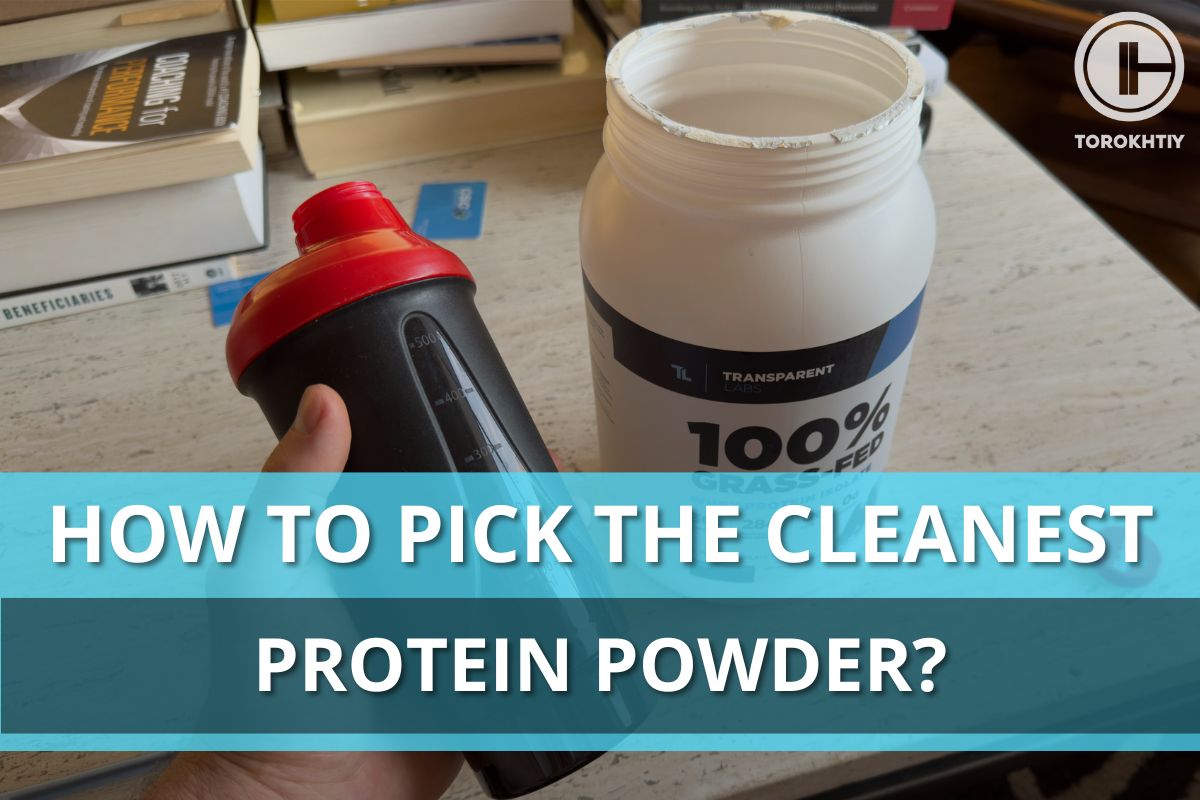
What is Clean Whey Protein Powder?
Clean whey protein powder is a supplement that has very few ingredients, and a macronutrient profile that is as close to 100% protein as possible. In real life, you want at least 80% protein by calories. Higher concentrations of protein look good on paper, but add significantly to the cost. Whether you want that is your choice.
In most cases, it is recommended to choose a protein product that has a minimal number of ingredients, preferably no more than 2-3. However, it is worth noting that having just one ingredient is not always feasible or desirable.
One common ingredient added to protein powders is lecithin, which serves the purpose of improving the mixability of the protein and preventing clumping in the container. Lecithin is a mixture of fats that are essential for the cells in the human body.
It is typically derived from plant sources such as soybeans or sunflowers. It is considered a safe substance and plays a significant role in enhancing the texture and taste of the protein drink. Therefore, omitting lecithin from the formulation may negatively impact the overall quality and palatability of the product.
In the case of plant-based proteins, a mix of several protein sources can be helpful to balance the amino acid composition. Therefore, more ingredients may be observed here.
We did our best to curate this list based on which proteins had the fewest ingredients and best macro breakdowns.
What more do you want from a clean protein? The absence of heavy metals, preferably confirmed by third-party tests, is an important point.
One more factor to consider is whether or not the dairy being used was sourced from grass-fed cows. Grass-fed cow’s milk tends to have higher levels of omega-3 fatty acids, which are beneficial for heart health, brain function, and reducing inflammation. It may also have higher levels of certain vitamins and minerals, including vitamin E, beta-carotene, and conjugated linoleic acid (CLA), a fatty acid with potential health benefits.
These cows tend to be happier and healthier, which leads to a higher quality milk product. Although it can be debated whether or not this matters when it comes to whey, it’s something to keep in mind when making a decision.
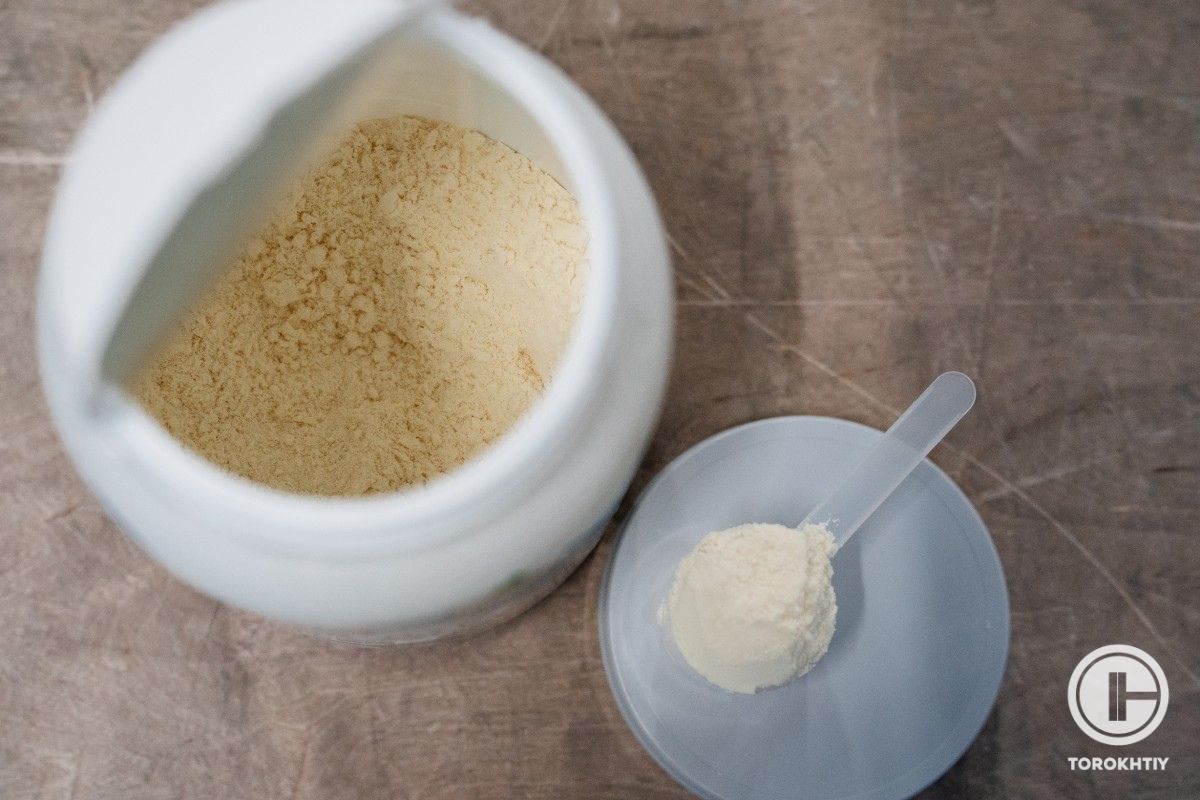
Which is Better: Whey or Plant-Based Protein Powder?
This will ultimately come down to a matter of personal preference, and diet. If you follow a plant-based diet, then you will obviously prefer plant-based protein. However, even if you aren’t completely plant-based, you may still opt for a non-dairy based protein.
The main differences between plant-based and whey proteins come in terms of overall nutrition, flavor, texture, allergen content (for some people it is soy, for some – milk proteins) and price.
In terms of nutrition, whey protein is the clear winner, often having up to 10 more grams of protein per serving than their plant based counterparts.
When it comes to flavor and texture, whey proteins are often the clear winners as well. Plant-based proteins have come a long way in these regards over the last few years, but they still aren’t on the same level as whey powders. Whey tends to be much smoother and have a generally more pleasing taste than plant-based powders.
Finally, there’s the matter of price, where whey once again comes out on top. Because vegan proteins are a more specialty product, they are often more expensive than whey – especially if you want something high quality. It is possible to find cheap vegan protein, just be aware they will usually have very poor taste and texture.
Overall, if you’re comfortable with dairy products, we recommend sticking with whey protein. However, if you follow a vegan diet, there are plenty of quality options out there – the 2 vegan proteins on our list being great examples.
Checklist to Find the Cleanest Protein Powders
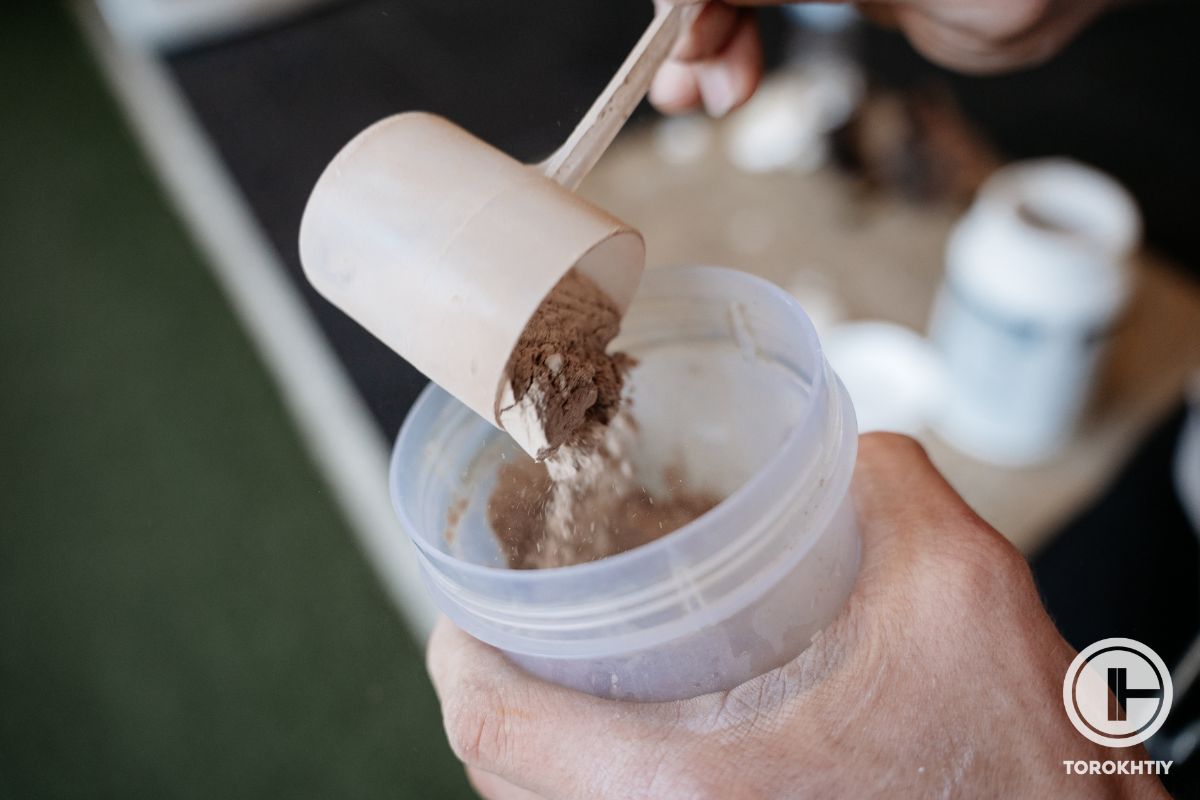
1. Ingredient List
The first thing you’ll want to check when looking for a clean protein powder is how many ingredients it contains. If a protein has very few filler ingredients, it is likely to be cleaner all around. With many proteins containing controversial artificial ingredients and even things like heavy metals and BPA.
If you’re concerned about the presence of heavy metals, go with a protein like Naked which proudly displays its heavy metal testing results. This will ensure you’re getting the safest protein powder possible.
Note that vegan proteins will likely have more ingredients because of the protein blends they use. However, you can still ensure there are no artificial or unfamiliar ingredients before making a purchase.
2. Nutritional Information
Once you’ve found a protein with minimal ingredients, check the nutritional information to make sure the macronutrient breakdown is in line with your goals. Higher calories are fine if you’re bulking, but if you’re looking to lose weight, you may want to find a product ~100-120 calories per serving.
Also, for whey protein you won’t want a protein concentration less than 80%; for vegan proteins, you won’t want a concentration under 70% as well.
Transparent Labs Protein Isolate
- Serving Size: 32.96 grams
- Price Per Serving: ~$1.8
- Protein Percent Of Weight (%): 85%
- Proteins: 28 grams
- Carbohydrates: 1 gram (depends on flavor)
- Fat: 0.5 gram (French Vanilla only)
- Added Sugar: 0 gram
- Calories Per Serving: 120
- Recommended By Athletes: Hafþór Júlíus Björnsson, Terron Beckham, Paul Sklar
This product only contains 2 ingredients: grass-fed whey protein isolate, and sunflower lecithin. Grass-fed cows have been shown to produce overall healthier milk. This is largely because of a healthier balance of omega fatty acids which shouldn’t be much of a concern when it comes to protein powder, but it is still worth considering when choosing where your dairy is sourced from.
Like all of Transparent Labs products, their protein is free from artificial sweeteners, coloring, and preservatives. Transparent Labs is a great choice if you’re looking for an excellent protein powder without additives.
While we recommend the Unflavored variety for the cleanest protein possible, Transparent Labs does offer 9 other flavors, including Milk Chocolate, French Vanilla, and Strawberry. They also offer a subscription service where you can save 10% on your order.
What To Mix Protein With For Better Taste?
If you’re concerned about protein tasting chalky or mixing poorly, we recommend blending it with the following ingredients to improve the taste – and add a boost of nutrition!
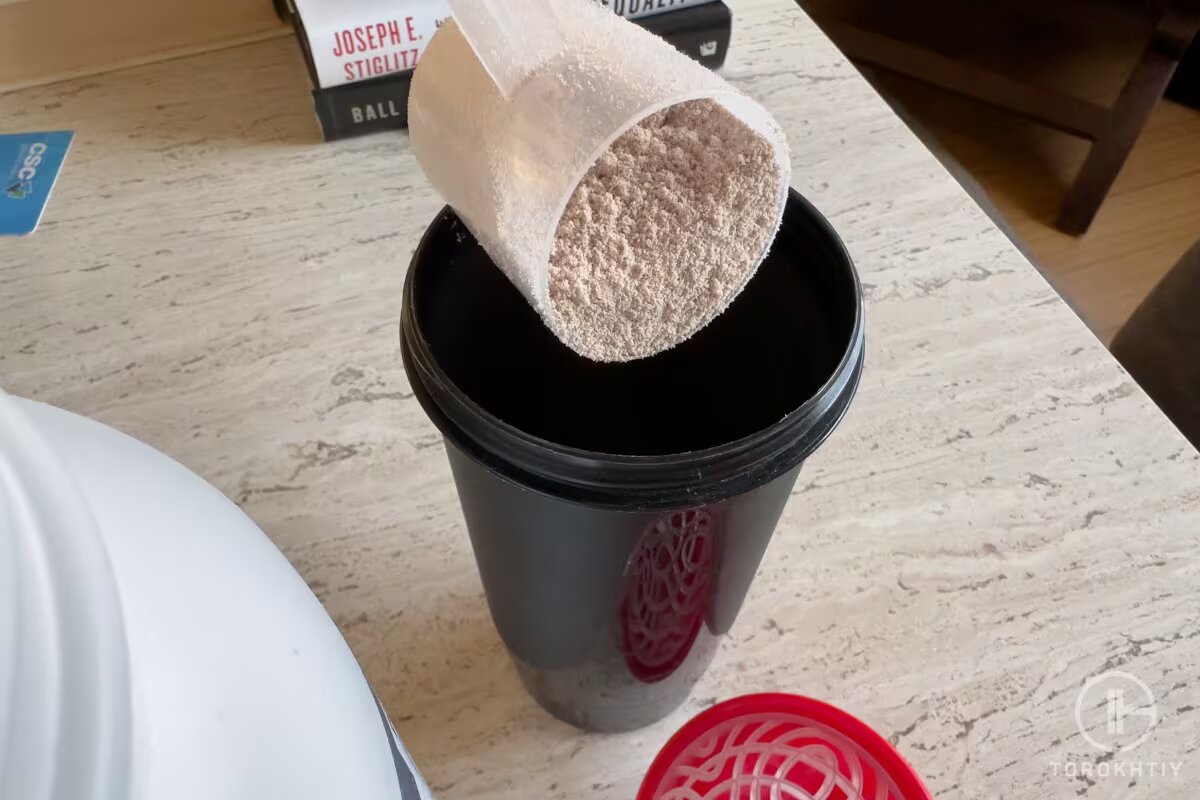
1. Milk
If you’re just mixing your protein with water, it will likely taste chalky and unpleasant, especially if it’s unflavored. This is why we recommend mixing with milk – either dairy or plant-based – instead for a richer, creamier flavor.
This is especially good if you’re bulking as milk will give an extra boost of calories and protein. On top of this, it’s a great source of calcium, B vitamins, and Potassium.
2. Fruit
Next, blending your protein powder into a smoothie with fruit like bananas, strawberries, or blueberries, will drastically improve the taste. Especially when it comes to berries, this may be a great choice for people cutting as they are relatively low-calorie and dense in micronutrients.
Bananas are a better choice for those bulking as they are slightly higher calorie, while still being very healthy. They also pair perfectly with the next ingredient on our list…
3. Nut Butters
To make a high calorie, nutrient dense shake for bulking, it doesn’t get much easier and tastier than mixing protein, milk, bananas, and nut butter. Keep in mind, we recommend going with a natural nut butter to avoid any unnecessary fillers or preservatives.
Different nut butters all have their own unique micronutrient profiles, so experiment with different kinds to see which you prefer!
FAQ
Is Clean Protein Good?
Of course! Clean protein can be qualified as any protein that has minimal, hiqh-quality ingredients, and has a solid nutritional profile. These are not only beneficial for recovering from tough exercise, but they can taste pretty great as well if prepared into a smoothie with some of the ingredients listed above.
What Is The Best Non-Chalky Protein Powder?
While whey proteins are likely less chalky than plant-based alternatives, our pick for the best overall non-chalky protein is Transparent Labs Whey Protein Isolate. Mixing protein into a smoothie with milk, fruit, and nut butter will help mask any chalky texture even more!
Conclusion
Choosing the cleanest protein powder doesn’t have to fry your nerves. Just focus on products with simple, quality ingredients an devoid any artificial additives and unnecessary fillers. Always carefully read the label, do some research on your own, and don’t get swayed by flashy marketing.
Do you have a favorite clean protein powder? Have you tried the one we recommend? Let us know your thoughts in the comments below!
Also read:
- Best Cheap Protein Powder
- What Is Condsidered Low Carb Protein Powder
- Organic Protein Powder Guide
- Creatine For Women
References:
- The hidden dangers of protein powders // Harvard Medical School: https://www.health.harvard.edu/staying-healthy/the-hidden-dangers-of-protein-powders
- Grass-fed cows produce healthier milk // UMN: https://extension.umn.edu/pasture-based-dairy/grass-fed-cows-produce-healthier-milk
- Milk // HSPH: https://www.hsph.harvard.edu/nutritionsource/milk/
- Berries are among the healthiest foods you can eat // HSPH: https://www.hsph.harvard.edu/news/hsph-in-the-news/fresh-berries-are-among-the-healthiest-foods-you-can-eat/
- Nut Butter // Dinner Tonight: https://dinnertonight.tamu.edu/nut-butter/
- All photos are made by Torokhtiy Media Team.
Why Trust Us?
With over 20 years in Olympic weightlifting, strength training, nutrition coaching, and general fitness our team does its best to provide the audience with ultimate support and meet the needs and requirements of advanced athletes and professional lifters, as well as people who strive to open new opportunities and develop their physical capabilities with us.
By trusting the recommendations of our certified experts in coaching, nutrition, and sports training programming, as well as scientific consultants, and physiotherapists, we provide you with thorough, well-considered, and scientifically proven content. All the information given in the articles concerning workout programming, separate exercises, and athletic performance, in general, is based on verified data.
The product testing process is described in more detail here.
Author: Oleksandr Maksymenko
Certified Sports Nutritionist,
MSc Sports Dietetics
Specializing in: Weight management, Fitness / Sports nutrition
Oleksandr is a professional fitness nutritionist certified by the Fitness Professional Association (FPA). He follows the principles of evidence-based dietetics and fosters a healthy relationship with food in his clients, ensuring there are no strict prohibitions on their favorite foods or frequent lapses. His primary goal is not only to achieve results for you but also to sustain them over the long term, all while enjoying tasty and delicious food.



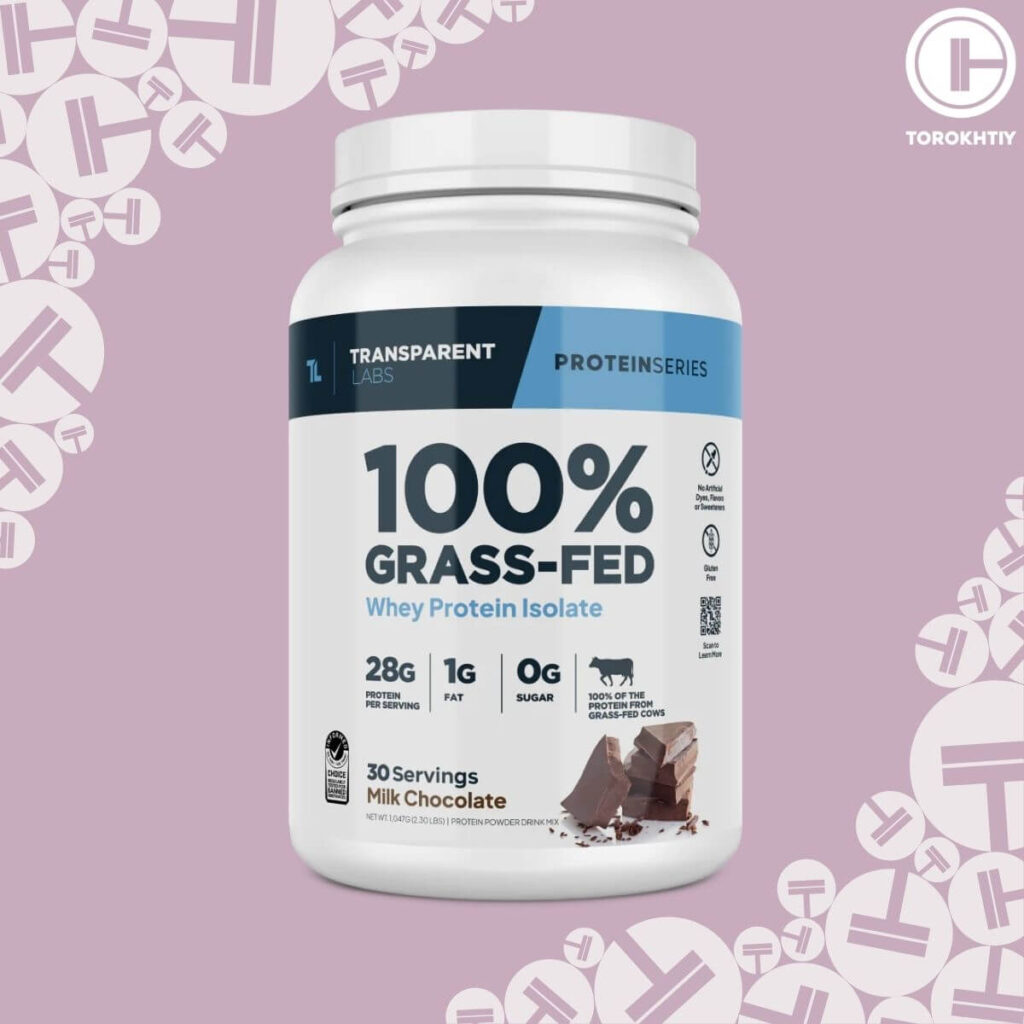
Still have questions after reading our article? Unlock your full potential by engaging with our experts and community! Don’t hesitate — leave a comment below and Oleksandr Maksymenko will provide a personalized answer and insights to help you reach your goals.